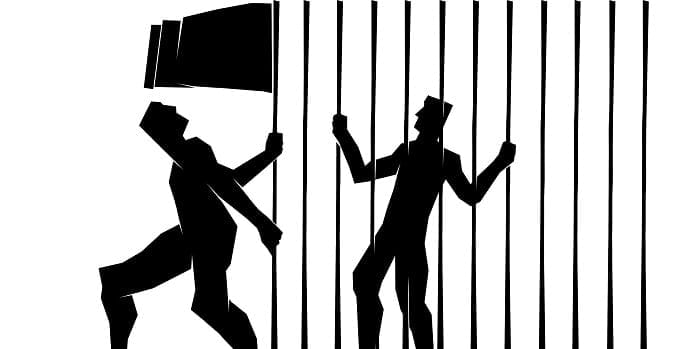A Constitutional and Human Rights Violation essay
Effective control over the rights of every human being is one of the most important tasks of government agencies as well as public associations. There is no doubt that public control should be based on the provisions of the U.S. Constitution that protects people’s basic rights and freedoms.
Speaking about the rights guaranteed to prisoners, it is possible to say that federal and state laws greatly maintain the administration of prisons and the rights of prisoners. Despite the fact that prisoners do not possess full Constitutional rights, they are protected by the U.S. Constitution and are prohibited from being punished in a savage and unusual manner. Indeed, ‘prisons are obligated to provide for prisoners’ health and medical treatment under the Constitution’s prohibition on cruel and unusual punishment under the Eighth Amendment as well as under international human rights law’ (Sichel 224). The protection means that all the prisoners should be afforded a minimum standard of living. In addition, prisoners are obligated to have some other Constitutional rights, such as due process and a legal right of access to the parole process. All in all, prisoners are protected against unequal treatment based on race, sex, ethnicity, and other personal characteristics since all ‘persons under any form of detention or imprisonment shall be treated in a humane manner and with respect for the inherent dignity of the human person’ (Sichel 252).
In contrast, some of the rights afforded to students can include as follows: the right to free speech and association, to effective teaching, to adherence to class syllabi, to due process, safety and privacy, and some other constitutional rights. Students’ rights are more protected by the constitution. However, there are some certain rights afforded to prisoners many students wish they had. For instance, it can be the right to be free from cruel punishment that means the use of ungrounded force against a person.
The study of most difficult types of offenders for the corrections system is still an ever-changing field of research. To date, there are many difficult types of offenders, who commit crimes against a variety of victims. However, the three most difficult types of offenders for the corrections system include sex offenders, mentally disordered offenders, and female offenders. There is no doubt that there are many different problems administrators face when dealing with each type of offender. For instance, female offenders present a significant fraction of the crime perpetrated in the community. Female killers who break the law reveal violent behaviors. Indeed, treatment of female offenders presents a number of serious challenges since sometimes it is difficult to recognize the reason for criminal activities. As for the mentally disordered offenders, it is possible to say that those are individuals who has a disability of the mind and has committed a criminal offence. For corrections, it is difficult to deal with those offenders because in some cases the individual may have become depressed by the fact that his conduct has been disclosed.
In fact, male sex offenders present the greatest challenge for correctional since no crimes cause the same degree of people’s concern as do sexual crimes. Offending is a very serious problem with a traumatizing effect on victims. As a result, correctional systems should pay specific attention to these particular offenders, provide adequate treatment for sex abusers (e.g. cognitive-behavioral therapy), and thus make all the possible efforts to deal with those crimes.
In conclusion, despite many difficulties administrators face when dealing with each type of offender, it is important to take all the possible measures to deal and overcome those offences in a proper way.
Do you like this essay?
Our writers can write a paper like this for you!



